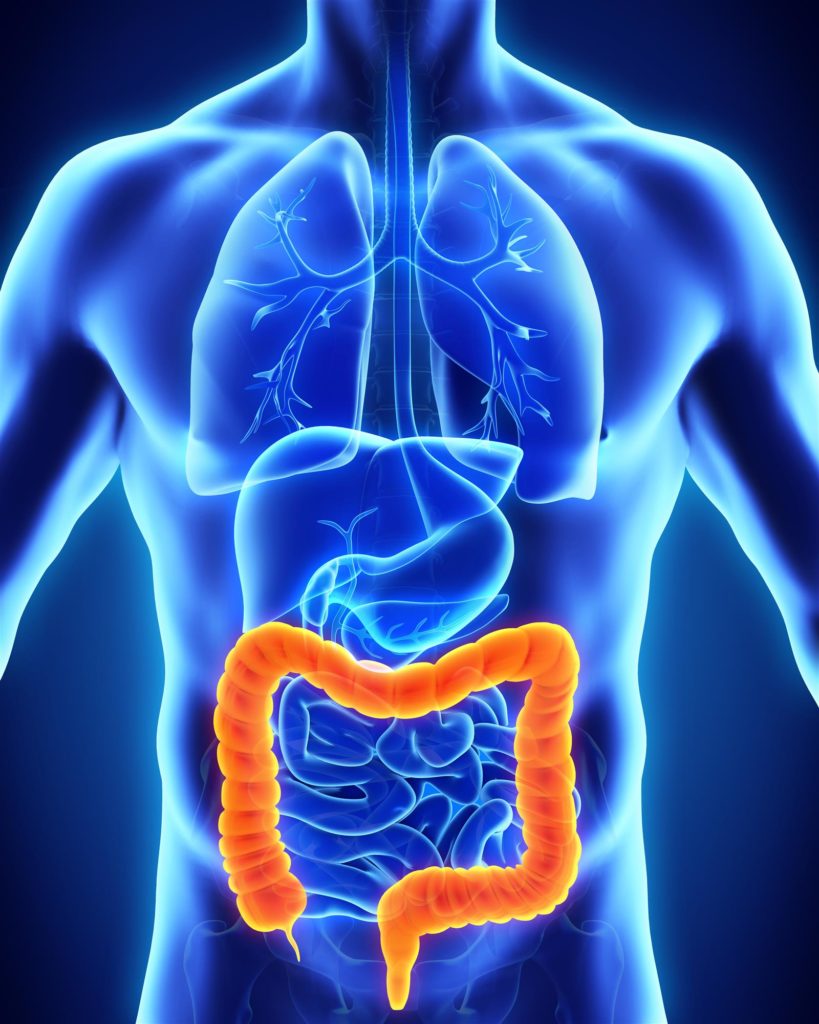Jump to:
What Is Colon Cancer?
Causes
Signs and Symptoms
Diagnosis
Dr. Anton Bilchik is an internationally recognized colorectal cancer surgeon in Los Angeles who has pioneered techniques to improve staging of colon cancer using technological advancements and is an expert in minimally invasive approaches. For those diagnosed with colorectal cancer, Dr. Bilchik provides a guiding light, one that has earned him the distinction of being one of “America’s Top Surgeons” 10 years in a row. Learning about colorectal cancer and how it affects your body allows you to understand more about your treatment and what it will take to get better.
What Is Colorectal Cancer?
 Colorectal cancer describes cancer that begins in either the colon or the rectum. It is a blanket term that is used when discussing either, because colon cancer and rectal cancer share many similarities. The colon and rectum are part of the gastrointestinal system, which breaks down food for energy and nutrients before collecting waste and passing it through the body. In the United States colorectal cancer is extremely common affecting more than 100,000 people each year. It appears to be increasing in people under age 50 and the American Cancer Society recently recommended screening at age 45.
Colorectal cancer describes cancer that begins in either the colon or the rectum. It is a blanket term that is used when discussing either, because colon cancer and rectal cancer share many similarities. The colon and rectum are part of the gastrointestinal system, which breaks down food for energy and nutrients before collecting waste and passing it through the body. In the United States colorectal cancer is extremely common affecting more than 100,000 people each year. It appears to be increasing in people under age 50 and the American Cancer Society recently recommended screening at age 45.
Colorectal cancer often forms slowly over a period of several years. What normally happens is a polyp, which is a non-cancerous growth, becomes present on the inner lining of the rectum or colon. Most polyps are benign but some such as adenomatous polyps can develop into cancerous tumors and can be easily removed by colonoscopy.
Cancerous polyps can invade the wall of the colon or rectum and spread to lymph nodes as well as the liver and other areas of the body. Dr. Bilchik treats colorectal cancer with a commitment to comprehensive, personalized care in our colon cancer treatment center in Los Angeles. Treatment plans are individualized for each patient’s specific needs.
Causes of Colorectal Cancer
The causes of colon cancer are largely unknown, but there is evidence that genetics could play a role. Inherited gene mutations known to contribute to the development of colorectal cancer include (but are not limited to):
- Familial adenomatous polyposis (FAP), a rare disorder that causes the growth of thousands of polyps in the lining of the colon and rectum.
- Hereditary nonpolyposis colorectal cancer (HNPCC), also called Lynch syndrome, which tends to affect people before age 50.
- Peutz-Jeghers syndrome, which is caused by inherited changes in a certain gene that appears to be a tumor suppressor gene.
- Crohn’s disease: This is a chronic inflammatory condition that primarily affects young adults between the ages of 16 and 40 living in northern, industrialized regions of the world (including the U.S. and Europe). Surgery is often required to remove tissue damaged by chronic inflammation.
- Ulcerative colitis: An inflammatory disease of the large intestine, ulcerative colitis affects around 500,000 people in the U.S.; it can increase a person’s risk of developing colon cancer.
Other risk factors include obesity, processed meat and physical inactivity. Over 70% of colorectal cancer is preventable through lifestyle and early screening.
Signs and Symptoms of Colorectal Cancer
Many people experience no symptoms at all, especially in the early stages of the disease—this is why screening is so important. Those who do have symptoms may experience any or all of the following signs and symptoms:
- Changes in bowel habits, including persistent constipation or diarrhea, or changes in the stool consistency
- Rectal bleeding, blood in the stool, and/or long, thin stools
- Abdominal pain or discomfort that is persistent
- Unexplained weight loss, fatigue, and/or loss of appetite
- Feeling your bowel isn’t empty, even after a bowel movement
- Feeling of severe constipation (from a rectal mass) or pain during bowel movement
Diagnosis
- Colonoscopy (the insertion of a flexible long tube with a camera) is the most common and sensitive method for diagnosing colorectal cancer. The procedure usually takes about 15 minutes to perform and is done with mild anesthesia. The American Cancer Society (PROVIDE LINK) has recently reduced the recommended screening age from age 50 to 45 because of a rise in the incidence of colorectal cancer in younger people (less than 50).
- Hemoccult test – a simple test for blood in the stool. This may be suggestive of a tumor but there are many false positives and negatives.
- Fecal immunochemical test (FIT) – this looks for hidden blood cells in the stool released by fragile polyps or cancer in the colon or rectum.
- Stool DNA tests – looks for abnormal DNA released into the stool by mutations colorectal cancer or polyp cells. If the test is positive a colonoscopy is recommended.


